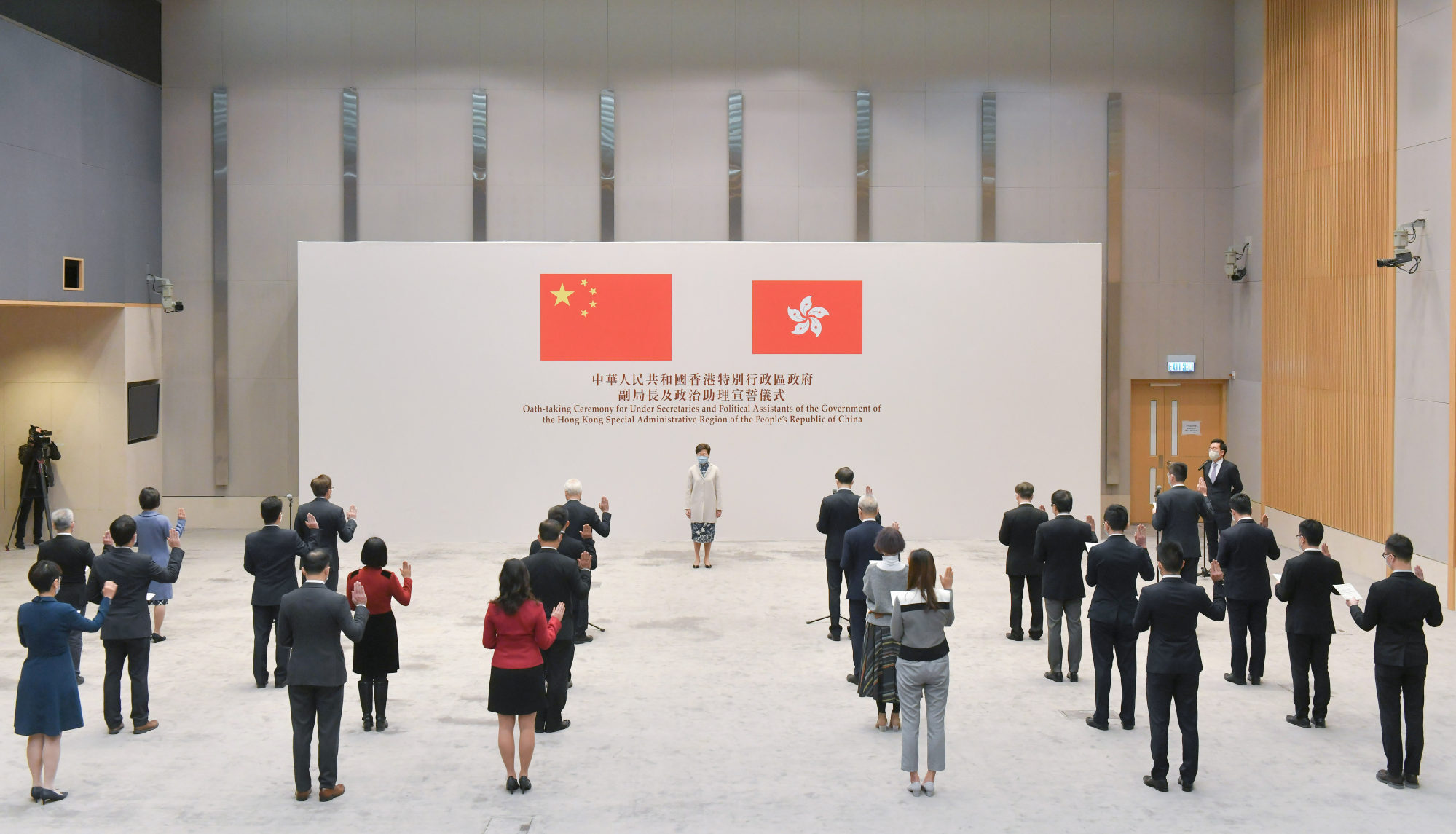
Free election day rides a voluntary gesture by Hong Kong bus and railway operators, Carrie Lam says in defending move
- No public spending will be involved in the scheme, expected to cost public transport companies about HK$35 million, which critics have called pointless
- Lam also reveals she will personally oversee oath-taking ceremony for lawmakers, a role previously for the Legislative Council secretary general
“It is the first Legislative Council general election after the improvements to Hong Kong’s electoral system,” she said, referring to a series of drastic changes imposed by Beijing earlier this year to shake up the city’s political system and slash the number of directly elected seats.
“Those improvements are crucial … and to ensure we are in a situation of ‘patriots administering Hong Kong’ and to help Legco to return to normality.”
Local and mainland Chinese officials alike have made numerous appeals to the public to vote in recent weeks amid fears of the lowest turnout in years, with Hong Kong’s commerce, education and development chiefs among those writing to urge people in their respective sectors to cast ballots.
The government has also for the first time set up polling booths at three checkpoints along the border for Hong Kong voters who live in mainland China.
Justice Barnabas Fung Wah, chairman of the Electoral Affairs Commission, on Tuesday said the government was arranging for a live broadcast of the vote-counting process at the three checkpoints.
Officers from the Independent Commission Against Corruption would also be stationed there to inspect the process, he added after visiting a mock polling station at North Point Community Hall.
But it remained unclear whether the border voting plan would be affected, with a potential Covid-19 outbreak in the Guangdong city of Dongguan threatening to disrupt the return of quarantine-free travel between Hong Kong and the mainland.
Lam on Tuesday also revealed she planned to personally oversee the oath-taking ceremony of the lawmakers elected on Sunday in a change from years’ past.
Since Hong Kong’s return to Chinese sovereignty in 1997, Legco’s secretary general has supervised the oaths, but the law was amended earlier this year to allow the chief executive to handle the ceremony.
Why some hopefuls in Hong Kong Legco race are not on social media
Analysts at the time said the measure would do little to encourage voting, while one transport operator expressed frustration at being “forced” to waive fares and suggested residents might simply take advantage of the offer for “leisure and entertainment purposes”.
Lam said transport companies had stepped up with the offer voluntarily.
“This election is important in many respects … I am pleased to say that many non-government entities, including the business sector, are helping us promote the election, to appeal to voters to come out to cast their vote,” she said.
“I believe [the franchised transport companies] also have this corporate responsibility to do something. So upon discussion with the Transport and Housing Bureau, these companies agreed to provide free transport on that day.”
“This is more of a gesture of collective responsibility to remind people that on December 19, we welcome you to come out. You can take the bus, you can go elsewhere, but also go to a polling station to cast your vote,” she added.
The scheme will cost an estimated HK$35 million (US$4.5 million), and the government will not reimburse the companies involved.
Free travel on Hong Kong’s trains, buses, trams on Legco poll day
Asked whether it would add to the companies’ financial woes amid the coronavirus pandemic, Lam noted they had funds set aside for community service purposes, such as providing free transport for the elderly from time to time.
“These concessions should be handled by those funds, which are not part of their daily expenditure … and will not involve any public spending,” she said.
But critics have also called the gesture pointless because most voters will cast their ballots at polling stations located near their homes.
Covert ‘foreign agents’ could undermine Hong Kong Legco poll: No 2 official
Addressing those who said the government had not done enough to educate residents about where to vote, Lam said 3 million pamphlets had been printed and mailed explaining the full details of Sunday’s poll.

The oath-taking ceremony for new lawmakers, meanwhile, was likely to take place in early January at a still-unconfirmed venue, a source said.
Lam will then address legislators and take questions at the first Legco meeting of their term on January 12.
While Legco members have in the past taken their oaths at the council meeting, the ceremony is expected to be held separately this year, according to the source.
In 2016, the ceremony became a scene of controversy, with some opposition lawmakers-elect chanting anti-China slogans and displaying pro-independence banners.
The saga sparked outrage in Beijing, which responded by issuing a resolution that resulted in the disqualification of six legislators. The controversy also raised questions as to whether Legco’s secretary general was the best person to administer the oaths.

